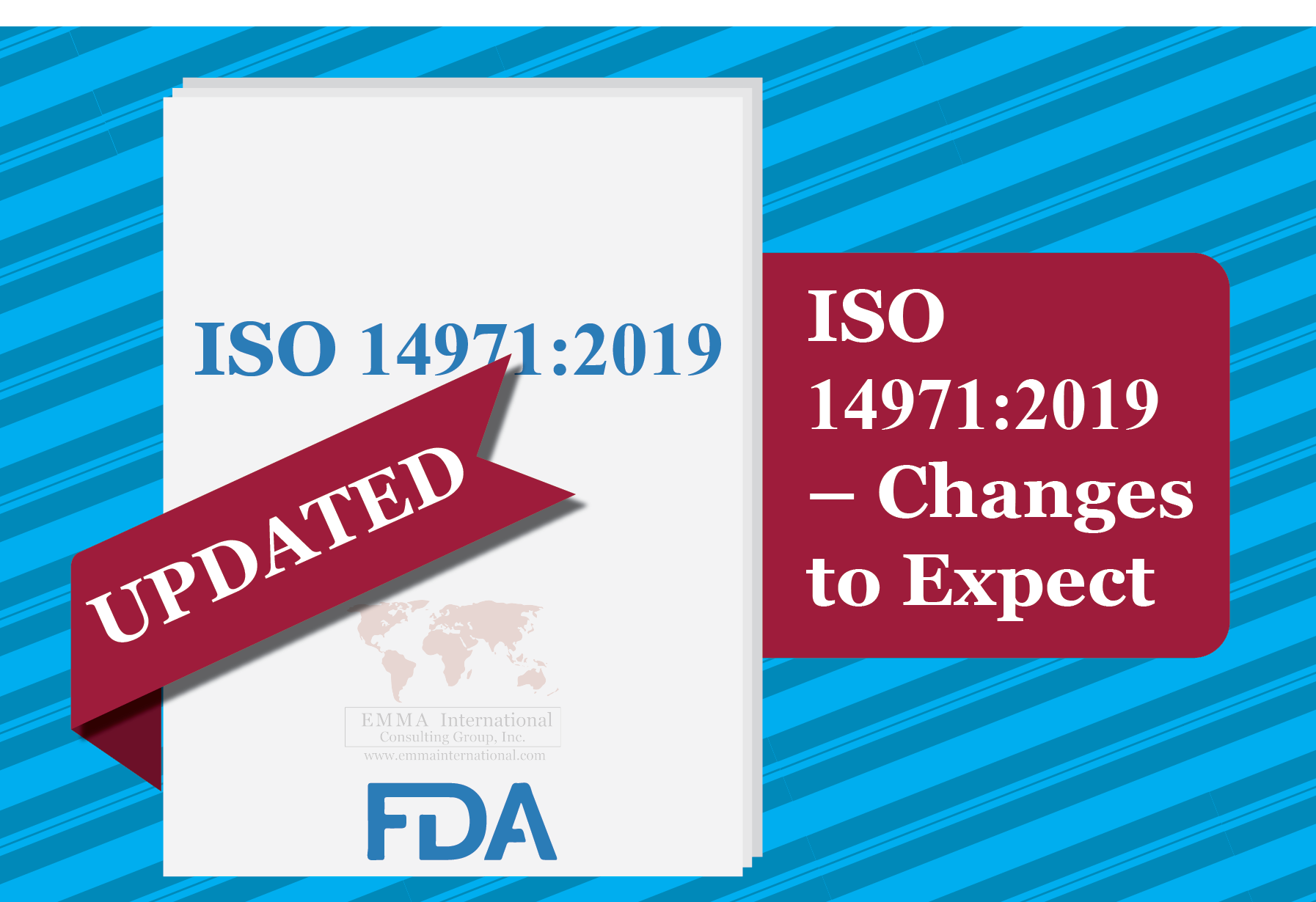The updated version of ISO 14971, Application of Risk Management to Medical Devices, has officially been published this month; this is an update to the previous versions, ISO 14971:2007 and EN ISO 14971:2012. The major changes include reorganization of the content, new terms and more detailed requirements that fall in line with the changes included in the EU MDR and IVDR1. It is critical that all medical device manufacturers, including developers of software as a medical device and in vitro diagnostic devices, understand the changes to the new standard and how to comply with them.
One major organizational difference is that the Technical Report (TR) 24971 is now a necessary supplement to the standard. Guidance on hazard identification, risk concepts and techniques, risk management for in-vitro diagnostic devices, and risk management plans have all been relocated out of the standard and into TR 24971.2JWG1, the technical committee that authored both ISO 14971 and TR 24971, moved to relocate the information to the technical report as it would be easier to revise than the standard itself when the information needed update.
The medical device community will also be introduced to revamped definitions of terms within ISO 14971:2019. For example, the term “reasonably foreseeable misuse” is defined as when the product is not used as it’s intended by the manufacturer “but which can result from readily predictable human behavior”3. Readily predictable human behavior is basically expecting how someone might misuse the device in normal circumstances, intentionally or not. An analysis of this type of misuse must be conducted as part of risk management for a device. Some other term updates include what defines “benefit” as relates to the risk-benefit analysis and “state of the art”.
There is also a new emphasis on examining the benefit-risk balance for a device as pertains to monitoring post-production activities. The intent of this is to continually analyze a device post-production in order to update the risk management process. For example, if clinical data reveals that the device risks outweigh any benefits to the patient, this will call for a re-analysis of the risk management file for the device. Device manufacturers will also see this same benefit/risk emphasis mirrored with the upcoming EU MDR.
ISO 14971:2019 aims to clarify the activities related to risk management for medical devices. While no major changes have been made to the overall process of how to conduct risk-management, medical device manufacturers will need to spend some time examining the details associated with each change in the new standard to ensure they are aligned completely with each requirement. EMMA International has the expertise to help ensure compliance with ISO 14971:2019 and all associated regulatory requirements. Call us at 248-987-4497 or email info@emmainternational.com to see how we can assist!
1 ISO (December 2019) ISO 14971:2019 Medical Devices – Application of risk management to medical devices retrieved on 12/23/2019 from: https://www.iso.org/standard/72704.html
2BSI (September 2019) Updated guidance on implementing risk management for medical devices retrieved on 12/23/2019 from: https://compliancenavigator.bsigroup.com/en/medicaldeviceblog/updated-guidance-on-implementing-risk-management-for-medical-devices/
3Agler (n.d.) FDA Design Considerations and Pre-market Submission Recommendations for Interoperable Medical Devices Final Guidance retrieved on 12/23/2019 from: https://www.fda.gov/media/108238/download






